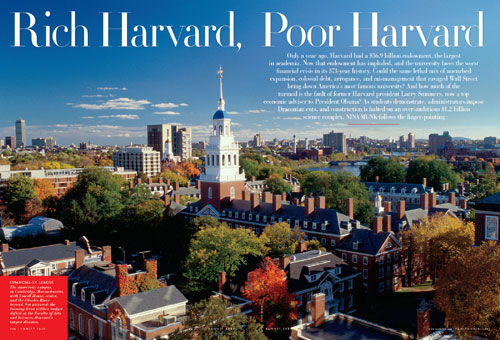When I’m in a hotel room, as I have been for the past several days, I tend to watch a lot of TV. I turn it on, it’s background.
As a result, I’ve been hearing so much about Michael Jackson, I’m noticing patterns. Words like “icon” and “genius” used over and over with no sense of what they actually mean. Tributes to Jackson as “the King of Pop” without any awareness that that was always a marketing phrase rather than a universal sentiment. An almost willful ignorance of the fact that Jackson hasn’t recorded in eight years, and that it’s been at least 20 years, possibly 27, since he made an album that was well-received. And a stubborn refusal to consider the correlation between his considerable talents and his bizarre and obviously unhealthy lifestyle.
I recognize the fascination Jackson holds for people across the world, and Off the Wall and Thriller are fantastic records, and surely the arc of Jackson’s life is rich with meaning and pathos. But the superficiality of all this coverage on television frustrates me. There’s a lot to look at with Jackson, of course. Those dance moves are wonderful. (The videos overrated, however—try watching the extended John Landis video of Thriller, and you’ll be underwhelmed.)
But there’s a lot to say and think about Jackson as well, and the ineloquence and simple vapidity of the tributes to him are an American problem.
(I liked the way President Obama declined to join in the orgy of superficiality; he could not remember Jackson without remembering that the singer’s life defied easy description.)
I am struck by this because one feels that Jackson’s epitath is largely being written right now and that it is filled with inaccuracies and reductivity. (I felt the same way when John Kennedy Jr. died.)
Why does this matter? Because in many ways Michael Jackson is not a hero, not an icon or a genius, and certainly not a role model. He is a cautionary tale. If we are to define him as an American icon, which we are doing, then we should establish all the complexities, the good and the bad, of that definition.
It’s interesting to compare Jackson’s life to that Farrah Fawcett, another “icon” who died the same day but whose death is now being ignored in the avalanche of Jacksonia.
Like Jackson’s, Fawcett’s biography is a truly American story. She was a former cheerleader from Texas who moved to Hollywood, was cast in a not-very-good ’70s television series, and became a sex symbol. Michael Jackson’s Thriller was the bestselling album ever; Farrah Fawcett’s poster was the bestselling poster ever. These things are not so different.
As a child, Michael Jackson was always forced to be more mature than his age would suggest. He was singing in a band at the age of five, singing emotions and actions appropriate for someone far older than Michael was.
As a grown man, though, he seemed determined to reverse his aging and maturation process, like a self-conscious Benjamin Button. He turned his yard into a zoo and an amusement park; he surrounded himself with children; he desexualized himself. When one watches that famous, planned kiss of Lisa Marie Presley, the awkwardness of it is discomfiting; it looks like a man who couldn’t care less about having sex with a woman trying to convince the world that he really does. All the crotch-grabbing in his videos suggests exactly the opposite of what it is supposed to: You can’t think of anything less sexual. When Jackson asks a pretty young thing to be his “girl” in the Thriller video, they hug—and even that is unconvincing.
Fawcett’s trajectory was the reverse. The daughter of an oil worker, a sorority girl at U.T.-Austin, she appeared in our consciousness as a fantasy from the start—an angel—part of a trio of gorgeous, single women who combined feminism (they had jobs! as detectives!) with sexuality and chauvinism (they were instructed by an older man on the telephone whom they never actually met).
What boy (or man, I guess) watching Charlie’s Angels didn’t pick a favorite? It was usually Farrah.

So Fawcett began her time in the American consciousness as a stereotype, a caricature. But she seemed determined to spend the rest of her life complicating and deepening that image. She left the show over disputes about money, and she didn’t hesitate to speak candidly about its appeal. As she told TV Guide in 1977, “When the show was number three, I thought it was our acting. When we got to be number one, I decided it could only be because none of us wears a bra.”
Fawcett would play against type throughout her career. In Extremities and The Burning Bed, she challenged men’s fantasies of her and the notion of obsessive sexual attraction—an interesting turn for a woman whose poster was obsessively hung in boys’ rooms and bars and garages across the country. Fawcett acted to complicate the picture; the blonde with a beautiful face and great body was part of her story, but that beauty, she wanted people to know, was only skin-deep; it bruised. Such a cliche, of course, but the fantasy that America had for Fawcett was powerful. People want to believe in eternal beauty, but if you are the person expected to fulfill that fantasy, it is a burden.

By contrast, Michael Jackson was obsessed with skin, both his own and others. “I’m black, I’m white,” he sang, but increasingly he wasn’t black, but an odd, vampire-like shade of white. (By the way, there’s a fascinating three or four minutes of Jackson dancing at the end of the video linked to above, well worth watching.)
Few believed his excuse that he suffered from a skin disease. How could you, when the rest of his face was undergoing so much transformation that Jackson barely looked human? Even as Fawcett was trying to show us that her beauty was simply a genetic stroke of good fortune, Jackson was trying to defy genetics, to define himself against the way he once looked and by the way he began to look. It wasn’t because the way people found Jackson’s skin color was limiting. Clearly it wasn’t. At the time of Thriller, Jackon still looked African-American.
It was because Jackson himself didn’t like his appearance, or, perhaps, the identity it manifested. Instead, he turned himself, quite literally, into a tabula rasa; one could project anything onto that chalky face. It meant everything; it meant nothing.

I’ve heard again and again on CNN and elsewhere that Michael Jackson bridged races, and there’s a lot of truth to that, especially when it come to the appeal of his music. But the fact that Jackson did not want to have black skin makes things complicated. It also explains his appeal to his most passionate fans, all of whom, when you see them on TV, look sort of pathetic and damaged and often unsure of their own identities in a Perez Hilton-sort of way. Michael Jackson made their damage not something to overcome, but something actually worthy of praise, not an obstacle but an end in itself. In that remade, made-up face, they saw themselves.
So much of Jackson’s life was rife with contradiction. He loved children, but he was—how can people say otherwise?—a terrible parent whose children are sure to grow up troubled. (He was also very possibly a child molester.) He had the wealth of an adult, but he spent money like a nine-year-old. He was ostensibly gentle, but his videos are laden with violent and fascist imagery. He was a solo artist whose life was populated with scheming and manipulative figures.
Perhaps most interesting to me, millions of people felt a connection to his music, but his music was, if you really think about it, cold and impersonal, the product of technology that seemed intended to mask Jackson’s real personality. Where is the Michael Jackson song that truly moves you? Does anyone really believe that Billie Jean is about a real relationship? Thriller is a great album to dance to, but does Jackson ever have anything to say? Has anyone ever given more than a passing thought to Jackson’s lyrics? His first solo hit, Ben, was about his love for a rat.
The music that connected with so many is, on consideration, about nothing. It is catchy as all get-out, but it is equally hollow.
As her life went on, Farrah Fawcett seemed determined to show that she was her own woman, not just a pawn of a mysterious (and metaphoric) voice emanating from a speakerphone.
Jackson, by contrast, was heavily dependent on “producers”; the greatest music of his career was crafted by Quincy Jones. How much was Jackson, how much Jones? I’ve always wondered, and that is what makes me hesitant to accept that Jackson was a musical “genius.”
Fawcett’s great relationships weren’t with producers, they were with lovers. She divorced first husband Lee Majors and had an on-again, off-again love with Ryan O’Neal that lasted for decades. One never heard tales of lots of men in her life; she was no bimbo. Her marriage to O’Neal may have been imperfect, but it was real. Michael Jackson married Elvis’ daughter; that was a stunt. He then married his dermatologist’s assistant, and God knows what happened between the two when they disappeared inside Neverland.
As Jackson retreated ever further from reality, Fawcett became increasingly immersed in it. While she never entirely left behind the sex symbol image, she certainly layered it, humanized it. A few years ago she was diagnosed with anal cancer, which is about the least sexy thing one can think of—unlike TB, anal cancer can not be romanticized—and documented her battle with it in a reality TV show. It would, of course, be the last episode of her life. What a progression! From the impossibly healthy-looking and gorgeous Farraw Fawcett Majors to a dying but much more human—and, in that sense, much more beautiful—woman.
Though existentially Michael Jackson seems to have been dying for years, his death still came as a shock, a surprise. Yet that makes sense; one suspects Jackson would prefer to die than grow old. As former backup singer Sheryl Crow has been saying on CNN, MTV and elsewhere, you can’t exactly imagine Michael Jackson at 80. I’m not sure if you can call this inhuman. But it is certainly uninspiring.
My intention is not to judge Michael Jackson. How could any outsider know what he lived through? By all appearances, he did the best he could.
But let us pay him a greater compliment than “genius” or “icon” or “king”: Let us consider his life and all of its contradictions.



